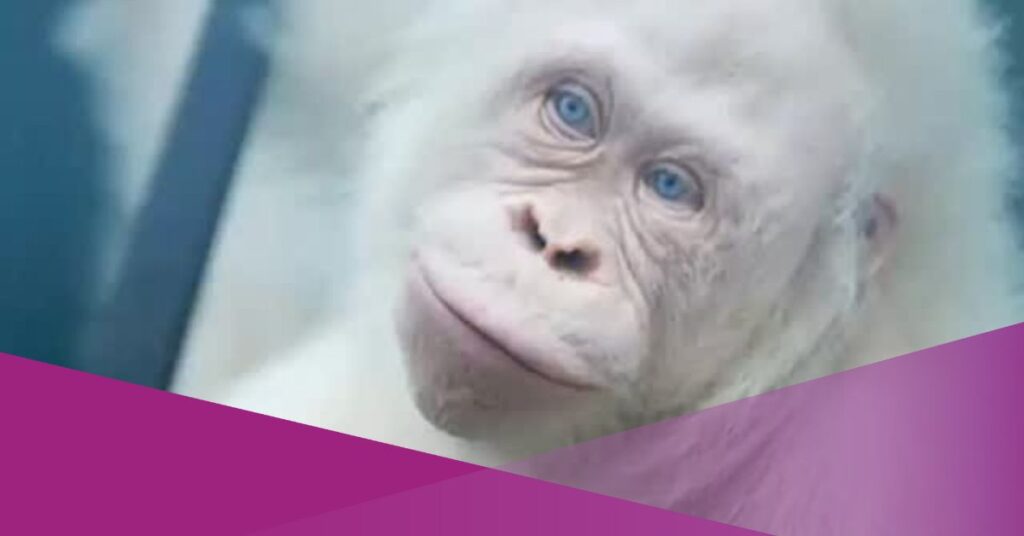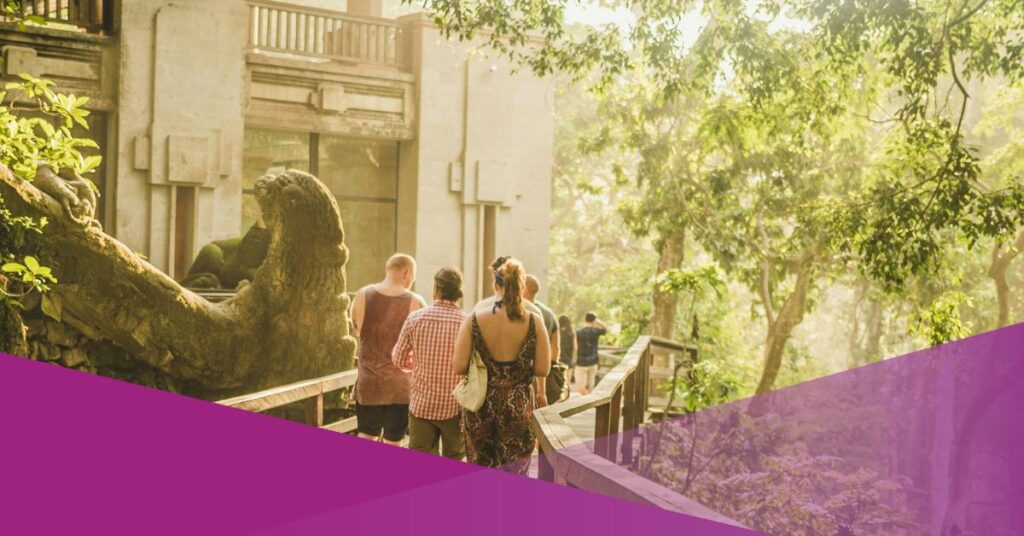On 29 April 2017, residents of Tanggirang Village in Central Kalimantan made a discovery unlike any other. They found a young orangutan with striking white fur, pale skin, and piercing blue-grey eyes.
The only recorded albino orangutan in the world. Named Alba, she was five years old at the time and weighed just 8.3 kilograms.
Although she was small and in poor health, emaciated, dehydrated, suffering from parasitic infection, and highly stressed, Alba still displayed her natural wild instincts, showing little interest in close human contact.
The Borneo Orangutan Survival (BOS) Foundation, together with the Central Kalimantan Natural Resources Conservation Agency (BKSDA) and the Kapuas Hulu Police, immediately evacuated her to the Nyaru Menteng Rehabilitation Centre.
Alba’s unique condition made her stand out from the very beginning. Unlike other Bornean orangutans (Pongo pygmaeus), with their distinctive reddish-brown coats and dark eyes, Alba’s creamy white fur, pinkish skin, and blue eyes made her look entirely different.
According to BOS, her albinism, caused by a genetic mutation that prevents melanin production, also posed serious challenges. She was highly sensitive to sunlight, prone to photophobia, and her pale colouring made her an easy target for predators or even poachers.
From Rehabilitation to Release
Alba remained under the care of BOS for more than a year, receiving treatment and rehabilitation to restore her health. She slowly regained weight, became more agile, and started showing her ability to climb trees and forage independently.
On 18 December 2018, Alba was declared fit for release and returned to the wild in Bukit Baka Bukit Raya National Park (TNBBBR), Central Kalimantan. She was released alongside another orangutan, Kika.
Just a month later, encouraging news arrived. The BOS monitoring team confirmed that Alba was adapting well. She had begun exploring up to four kilometres from the release site, building nests, feeding independently, and interacting with other orangutans without conflict.
Agung Nugroho, Head of TNBBBR, praised the community-led monitoring programme. “I received reports that Alba is able to explore far, eat well, and build nests during her journey. She is also socialising with other orangutans released into the national park. This is truly a positive development. We all hope that Alba will continue to survive in this forest and remain in the wild,” he said, as quoted from Detiknews.
Life in the Forest
Alba’s post-release progress has been closely followed. Between December 2018 and the end of 2019, observations revealed her daily activities: around 56.5 per cent of her time was spent foraging, 27.2 per cent moving, 13.8 per cent resting, and 2.2 per cent nest building or interacting socially.
These numbers, according to BOS, are considered healthy and consistent with wild orangutan behaviour.
Despite concerns about her visibility and sensitivity to sunlight, Alba has shown resilience in her new habitat. She remains both a symbol of Indonesia’s extraordinary biodiversity and a reminder of the urgent need to protect endangered species and their fragile habitats.






























